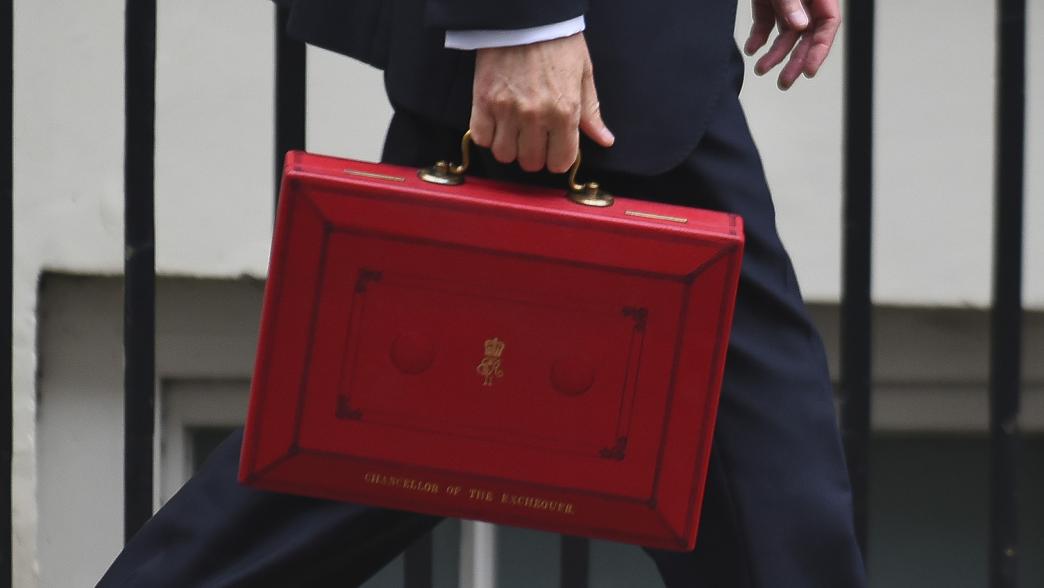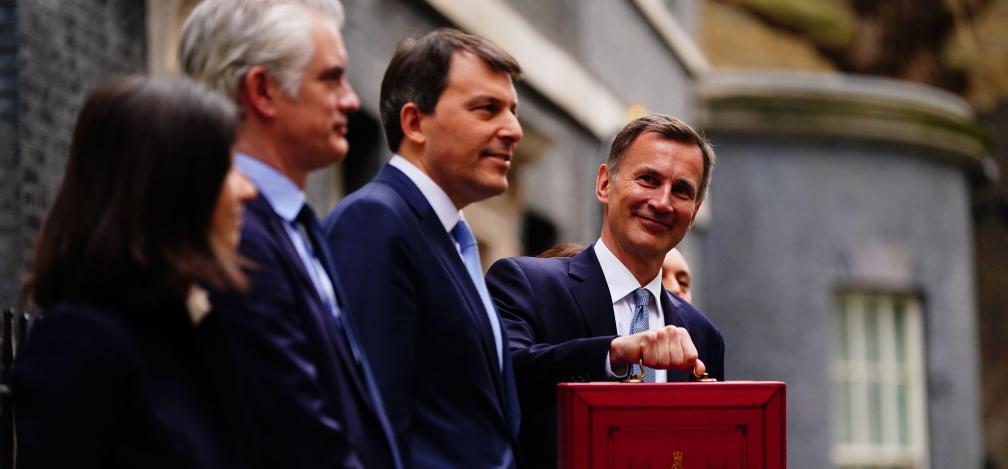Budgets
Governments require parliament’s approval to spend money, as well as to raise revenue in the form of taxes.

What is the budget?
Governments require parliament’s approval to spend money, as well as to raise revenue in the form of taxes.
The government lays out its plans for new taxes and welfare policies, and changes to existing taxes and welfare policies, in the budget, with the chancellor giving a speech to the House of Commons. As well as setting out the government’s plans for taxes, budgets also give an overview of the general state of the UK economy.
Parliament provides its main scrutiny of spending plans through the separate ‘estimates’ process, where the government presents spending proposals for each government department for parliament’s approval.
Before 1998, the budget was held in the autumn but between 1998 and 2016, it was usually held in the spring, just before the start of the new financial year. However, after the then chancellor Philip Hammond decided in 2016 to have just one principal fiscal event a year – in line with most other major countries – the budget was moved to the autumn (with both spring and autumn budgets held in 2017).
There was no budget in 2019, making that the first calendar year without a budget since at least 1900. In 2022, despite several fiscal statements, there was again no budget during the calendar year.
Does there have to be a budget every year?
There needs to be a budget each fiscal year (with each fiscal year beginning on 6 April) because two major taxes – income tax and corporation tax – are technically temporary and must be reapproved each year.
In theory, this could happen without a full budget statement – so long as the necessary budget resolutions were passed before the end of the financial year, and a finance bill was passed within seven months of those resolutions. However, this would be unprecedented.
How is a budget passed in the UK parliament?
Broadly, there are two main stages to getting a budget through parliament. First, there are a series of votes and debates in parliament to provisionally allow the government to make changes to tax; second, the budget is then translated into law in the form of a finance bill, which gives the provisional arrangements permanent effect.
Provisional collection of taxes and budget resolutions
Once the chancellor has finished giving their budget speech in the Commons, the government seeks provisional agreement from parliament for any changes to tax measures, or new tax measures, that it wants to come into force before the finance bill is passed.
For any changes to or continuations of existing taxes that the government wants to come into effect on the day of the budget itself – for example, changes to excise duties on alcohol or tobacco – MPs are asked to agree to a single provisional collection of taxes motion.
For any other measures due to come into force before the finance bill is passed, the government must get parliamentary approval through a series of budget resolutions – one for each tax measure. These budget resolutions are usually debated by the Commons for four days and must be passed within 10 sitting days of the budget. During the debate on the budget resolutions, MPs are allowed to discuss any issues they wish related to the broader public finances to allow them to consider the new policies in their wider context. Each day of debate covers a particular theme – for example, health. Generally, MPs will not divide – that is, they will not formally vote – on each budget resolution, but votes may occur on more contentious or significant resolutions.
Budget resolutions are known as ‘ways and means’ resolutions in parliamentary jargon. This is why budget debates are chaired by the most senior deputy Speaker – who is also the ‘chairman of ways and means’ – although there is nothing stopping the Speaker chairing budget debates, which has happened. undefined UK parliament, The Chairman of Ways and Means/Deputy Speakers, www.parliament.uk/about/living-heritage/evolutionofparliament/parliamentwork/offices-and-ceremonies/overview/chairman-waysmeans/
The government must pass at least one budget resolution to form the basis of the finance bill. Additional substantive clauses can be added to the finance bill later, but would require a further budget resolution to be made.
Finance bills
Once the House of Commons has passed the budget resolutions, the government will introduce a finance bill, which puts the budget into law.
Finance bills move through parliament like other bills, with one major exception: while a finance bill must go through the House of Lords, the tradition of the Commons’ privilege on financial matters means that the Lords is not expected to amend or vote down financial legislation.
A finance bill must receive its second reading within 30 days of the passage of the budget resolutions, and become law within seven months.
Spring Budget 2024
Follow the latest commentary and analysis from IfG experts before and after the Spring Budget on Wednesday 6 March.
Read more
What happens if the government can’t pass a budget?
A government could be defeated on a specific budget resolution or on a vote on the subsequent finance bill. The effects of this on a government would depend on the specific vote that they lost.
Governments have previously been defeated on particular measures contained within budgets. For example, in 1994, the then government was defeated on a proposal to increase the rate of VAT on fuel. This forced the chancellor to bring forward a new package of measures to deal with the unexpected loss of revenue but it was not fatal to the government.
But if a government were to be defeated on a measure that clearly affected their ability to raise vital revenue, and therefore constrained their ability to govern, a defeat on a budget could be more damaging. With the repeal of the Fixed-term Parliaments Act 2011, a specifically worded motion of no confidence is no longer required to trigger a general election. This means that a government defeat on a budget measure could be treated as a vote of no confidence. However, there is also nothing stopping the official opposition tabling a no confidence motion after the budget if it finds that the government’s ability to command the will of the House is in question.
Can the government delay a budget?
Between 1998 and 2016, the government made a budget statement in the spring, with a second fiscal statement in the autumn – referred to as the pre-budget report under the New Labour government and the ‘autumn statement’ during George Osborne’s period as chancellor.
In autumn 2016, the then chancellor, Philip Hammond, committed the government to one fiscal event a year – with a budget to be held every autumn, followed by a spring statement just before the end of the financial year.
There are two ways for a government to delay parliament voting on its budget measures. First, it could delay presenting the budget until later in the financial year. In the extreme, a government need not present a budget statement at all, though it must pass at least one budget resolution to form the basis of the finance bill.
Second, the government could present its budget statement, but then choose not to bring some elements of it forward for a vote. After bringing forward necessary motions on immediate tax changes, and the first budget resolution to form a small finance bill, a government could then decide to delay bringing other measures forward. The government could then bring another budget forward dealing with resolutions it had dropped. This has happened before: in 1848, the government had to introduce three budgets. But in such a scenario, a government would have been significantly weakened politically.
What is an emergency budget?
In some circumstances (such as following a general election or in a crisis) the government may wish to quickly announce changes to tax and spending. There is no specific parliamentary procedure that defines an ’emergency budget’ that differentiates it from routine budgets. The chancellor is technically able to announce changes to fiscal policy at any time, although the government would need to pass a budget resolution to make changes to tax.
If the government wants to hold a budget outside the usual cycle with a complete economic and fiscal forecast then it needs to provide 10 weeks’ notice to the Office for Budget Responsibility (OBR) to prepare this. However, there is nothing precluding chancellors from announcing changes to fiscal policy without an accompanying forecast. They could announce new policy through a ministerial statement in the House of Commons (as was the case in the July 2020 ‘summer economic update’) or they could even announce it to the media without a Commons statement. For example, during the pandemic the chancellor introduced the Coronavirus Job Retention Scheme – or ‘furlough’ – at a Downing Street press conference.
While a more ad hoc approach to economic and fiscal policy making might be justified in a fast-moving emergency, to quickly provide support to households, businesses and financial markets (as is the case now, with inflation at record levels and resulting cost of living crisis), doing so restricts parliamentary scrutiny. Moreover, in many cases the government will be making major decisions without a full economic and fiscal forecast from the OBR. There is concern that the Treasury has become over-reliant on making policy announcements outside of regular fiscal events, as was the case with the energy bills package in February 2022 and announcement of the health and social care levy in September 2021.
- Keywords
- Budget Public spending Spending review Economy
- Position
- Chancellor of the exchequer
- Department
- HM Treasury
- Publisher
- Institute for Government